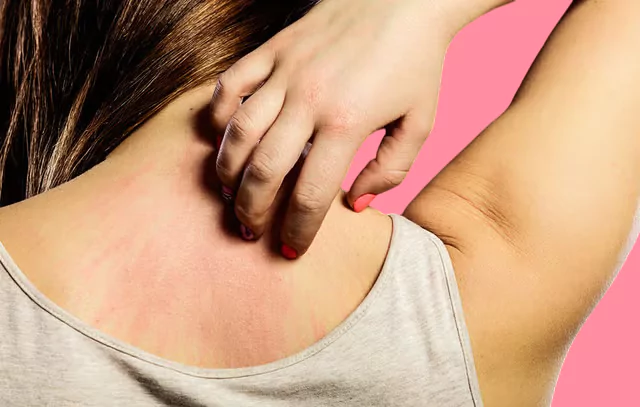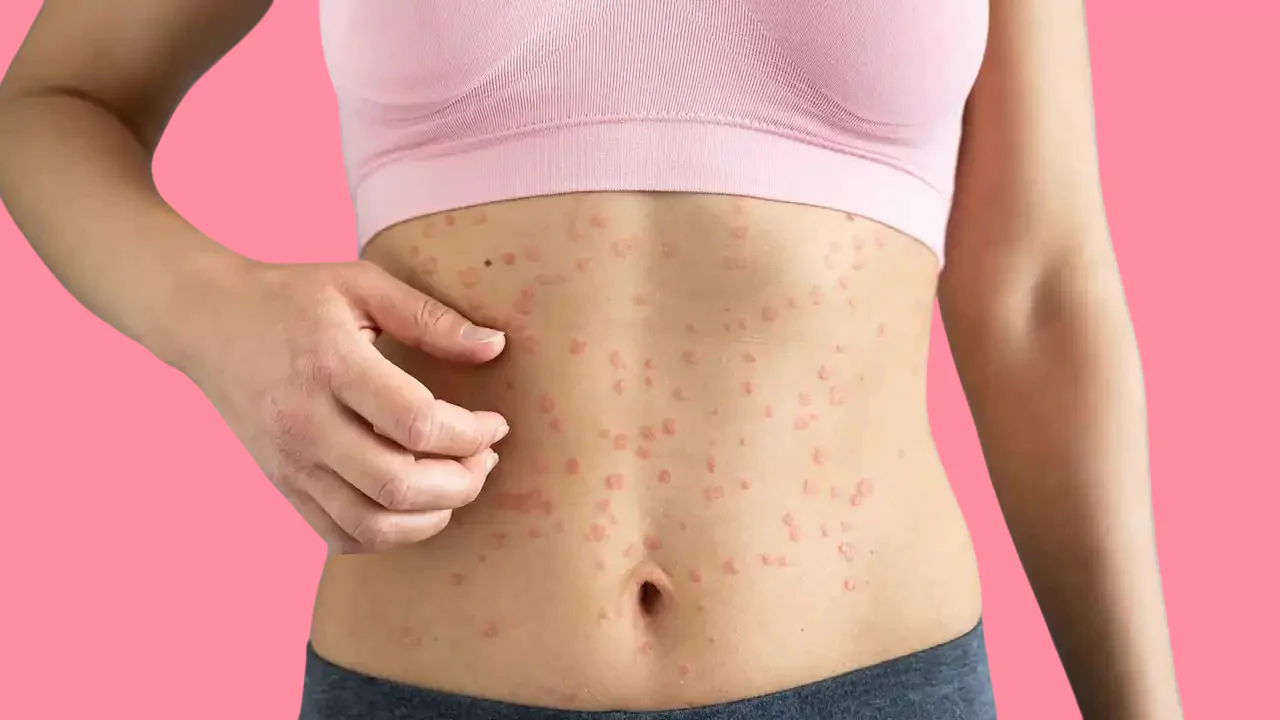Psoriasis is a chronic skin disease that affects a significant percentage of women. It is characterized by the appearance of red patches covered with thick, white scales that cause itching and pain.
Although it is not contagious, its physical and psychological impact can be significant and significantly impact a woman's quality of life and self-confidence.
What is psoriasis?
Psoriasis is a chronic immune system disorder that causes skin cells to regenerate more rapidly than normal, leading to their accumulation and the formation of thick, scaly layers.
It often appears on the scalp, knees, elbows, or lower back, and can extend to the nails or joints in some severe cases.
What are the causes of psoriasis in women?
The exact causes of psoriasis are not fully known, but they are linked to a combination of immune, genetic, and environmental factors, the most prominent of which are:
- Genetic predisposition.
- Immunopathy.
- Psychological and nervous stress.
- Hormonal disorders.
- Skin injuries.
- Certain medications.
- Cold and dry weather.
- Smoking and obesity.
What are the symptoms of psoriasis in women?

Symptoms vary depending on the type and severity of psoriasis, but they often include:
- Red patches covered with thick, silvery scales.
- Itchy, dry skin.
- Painful cracks that may sometimes bleed.
- Changes in the shape of the nails.
- Joint pain or stiffness in some cases.
Common Types of Psoriasis in Women
The types of psoriasis that affect women vary in shape, location, and severity of symptoms. The most common types include:
- Plaque psoriasis: The most common form, characterized by red, scaly patches.
- Guttate psoriasis: Appears as small dots after a sore throat or cold.
- Inverse psoriasis: Appears in body folds, such as under the breasts or armpits.
- Scalp psoriasis: Causes thick scaling and persistent itching.
Factors That Increase the Severity of Psoriasis in Women
There are a number of factors that may exacerbate psoriasis symptoms or cause recurrent attacks in women, the most important of which are:
- Constant stress and psychological pressure.
- Hormonal changes.
- Using harsh soaps or irritating lotions.
- Lack of sleep or physical exhaustion.
- Neglecting moisturizing and skin care.
The Physical Impact of Psoriasis on Women
Psoriasis doesn't just affect the skin; its effects extend to:
- Nails: where cracks or yellow spots appear.
- Joints: In some cases, it causes what is known as psoriatic arthritis, which leads to joint pain and stiffness.
- Skin: Persistent dryness and cracks can lead to inflammation or skin infection.
- Physical discomfort: Itching and chronic pain can impair sleep and daily energy.
The Psychological Impact of Psoriasis in Women

Psychological aspects are among the most stressful for women with psoriasis, and include:
- Low self-confidence: due to the uncomfortable appearance of the skin, especially in exposed areas.
- Anxiety and depression: due to negative perceptions from others or feelings of embarrassment.
- Social isolation: Some women tend to avoid social events for fear of comments.
- Constant stress: which in turn exacerbates the condition and increases the severity of attacks.
What is the treatment for psoriasis in women?
The goal of treatment is to control symptoms and reduce the frequency of attacks. It includes:
- Topical creams.
- Phototherapy.
- Systemic medications.
- Modern biological therapies.
- Skin care.
- Avoiding triggers.
Tips for women living with psoriasis
Women can live with psoriasis and reduce its impact on daily life by following some simple guidelines. The most important of these tips are:
- Keep your skin moisturized daily.
- Avoid stress as much as possible.
- Choose comfortable cotton clothing.
- Follow a healthy diet rich in omega-3.
- Commit to regular doctor visits for follow-up.
Is psoriasis contagious?
No, psoriasis is not a contagious disease because it results from an immune system disorder, not an infection.
Is psoriasis completely curable?
There is no definitive cure yet, but it can be controlled with medication and proper care.
Does psoriasis affect pregnancy?
In most cases, it does not affect pregnancy, but some treatments must be adjusted during pregnancy under a doctor's supervision.
Article Summary
Psoriasis is a chronic immune system disease that causes red patches and thick scales on the skin due to overactive skin cells.
Genetics, stress, and hormonal changes play a major role in its development. Although psoriasis is not dangerous, its psychological and physical effects can be significant. Therefore, its treatment requires medical attention and ongoing psychological support to improve a woman's quality of life and effectively control the disease.